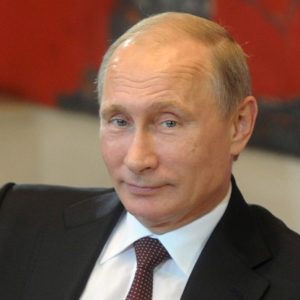I as well as millions of other Americans tired long ago about the reports we saw and heard over and over that “experts” continued to harass us with claiming “We know factually that the Russians interfered with the 2016 election in coordinated efforts to denigrate Hillary Clinton and to assist Donald Trump’s win of the White House.”
”Factually” is the word that perked me up: at TruthNewsNetwork we research, always digging for facts. I’m sure you will understand that when we are told by “experts” that something politically is “factual,” our stomachs turn and our heads ache because the belief that what political “experts” tell us today are “facts,” we are pretty certain they are NOT facts.
But in our patience and continued research, we have unearthed some facts about 2016 that support those Russian interference claims in 2016 with apparent attempts to discredit Clinton. We had significant help from other news sources in putting this together. (See credits at the end of this report) But saying this has been a difficult task and that there has been little cooperation from our normal sources is a gross understatement.
This report will be our ONLY such report going forward, so it is lengthy and detailed. We will present it in two parts to make it easier to digest. And we’ll hold our Summary until the end of Part II that you’ll see tomorrow.
Read carefully! There’s much “meat” in this. And it explains much and answers many questions you may have. But it will also initiate new questions for you. Let’s go!
The Fake Americans Russia Created to Influence the Election
I knew that the Russians had attempted on numerous occasions to impact the elections of foreign countries. So do the Chinese, and, for that matter, so does the United States! We’ve reported on those in previous reports here at TruthNewsNetwork. That being said, my assumption has always been that the NSA and the CIA as the two foremost U.S. intelligence agencies on the frontlines of defense of the nation’s IT infrastructure stopped every threat. Surely their protections extended into our election system. Because of the cloak of secrecy that covers both agencies, I assumed it was for that secrecy that none of their methods were known to the public.
I was shocked to learn that those “experts” probably were right. What was a bigger surprise was the way the Russians had sneaked into our IT infrastructure.
It’s not surprising the Russians use spies. They always do. We do, China does, and every other country on Earth does too. But apparently, the Russians in 2016 didn’t (at least on the most part) use actual Russian spies. They created “fake” Americans to be their spies.
Russian Spies in America
 Melvin Redick of Harrisburg, PA, a friendly-looking American with a backward baseball cap and a young daughter, posted on Facebook a link to a brand-new website.
Melvin Redick of Harrisburg, PA, a friendly-looking American with a backward baseball cap and a young daughter, posted on Facebook a link to a brand-new website.
“These guys show hidden truth about Hillary Clinton, George Soros and other leaders of the US,” he wrote on June 8, 2016. “Visit #DCLeaks website. It’s really interesting!”
Mr. Redick turned out to be a remarkably elusive character. No Melvin Redick appears in Pennsylvania records, and his photos seem to be borrowed from an unsuspecting Brazilian. But this fictional concoction has earned a small spot in history: The Redick posts that morning were among the first public signs of an unprecedented foreign intervention in American democracy.
The DCLeaks site had gone live a few days earlier, posting the first samples of material, stolen from prominent Americans by Russian hackers, that would reverberate through the presidential election campaign and into the Trump presidency. The site’s phony promoters were in a cyber army of counterfeit Facebook and Twitter accounts, a legion of Russian-controlled impostors whose operations are still being unraveled.
The Russian information attack on the election did not stop with the hacking and leaking of Democratic emails or the onslaught of stories, true, false and in between, that battered Mrs. Clinton on Russian outlets like RT and Sputnik. Far more difficult to trace was Russia’s experimentation on Facebook and Twitter, the American companies that essentially invented the tools of social media and, in this case, did not stop them from being turned into the sources of deception and propaganda.
An investigation by The New York Times and new research from the cybersecurity firm FireEye reveals some of the mechanisms by which suspected Russian operators used Twitter and Facebook to spread anti-Clinton messages and promote the hacked material they had leaked. Recently, Facebook officials disclosed that they had shut down several hundred accounts that they believe were created by a Russian company linked to the Kremlin and used to buy $100,000 in ads pushing divisive issues during and after the American election campaign.
On Twitter, as on Facebook, Russian fingerprints are on hundreds or thousands of fake accounts that regularly posted anti-Clinton messages. Many were automated Twitter accounts, called bots, that sometimes fired off identical messages seconds apart — and in the exact alphabetical order of their made-up names, according to the FireEye researchers. On Election Day, for instance, they found that one group of Twitter bots sent out the hashtag #WarAgainstDemocrats more than 1,700 times.
The Russian efforts were sometimes crude, with a trial-and-error feel, and many of the suspect posts were not widely shared. The fakery may have added only modestly to the din of genuine American voices in the pre-election melee, but it helped fuel a fire of anger and suspicion in a polarized country.
A Times investigation reveals missed signals, slow responses and a continuing underestimation of the seriousness of a campaign to disrupt the 2016 presidential election.
Given the powerful role of social media in political contests, understanding the Russian efforts will be crucial in preventing similar, or more sophisticated, attacks in the 2020 congressional races and the presidential election. Multiple government agencies have investigated the Russian attack, though it remains unclear whether any agency is focused specifically on tracking foreign intervention in social media. Both Facebook and Twitter say they are studying the 2016 experience and how to defend against such meddling.
“We know we have to stay vigilant to keep ahead of people who try to misuse our platform,” Alex Stamos, Facebook’s chief security officer, wrote in a post about the Russia-linked fake accounts and ads. “We believe in protecting the integrity of civic discourse.”
Critics say that because shareholders judge the companies partly based on a crucial data point — “monthly active users” — they are reluctant to police their sites too aggressively for fear of reducing that number. Remember: Facebook and Twitter are free to users. Advertising pays the bills AND investors their stock dividends. The more accounts, the more ads get sold and at higher prices.
The companies use technical tools and teams of analysts to detect bogus accounts, but the scale of the sites — 328 million users on Twitter, nearly two billion on Facebook — means they often remove impostors only in response to complaints.
Though both companies have been slow to grapple with the problem of manipulation, they have stepped up efforts to purge fake accounts. Facebook says it takes down a million accounts a day — including some that were related to the most recent French election and upcoming German voting — but struggles to keep up with the illicit activity. Still, the company says the abuse affects only a small fraction of the social network; Facebook officials estimated that of all the “civic content” posted on the site in connection with the United States election, less than one-tenth of one percent resulted from “information operations” like the Russian campaign.
Twitter, unlike Facebook, does not require the use of a real name and does not prohibit automated accounts, arguing that it seeks to be a forum for open debate. But it constantly updates a “trends” list of most-discussed topics or hashtags, and it says it tries to foil attempts to use bots to create fake trends. However, FireEye found that the suspected Russian bots sometimes managed to do just that, in one case causing the hashtag #HillaryDown to be listed as a trend.
Clinton Watts, a former F.B.I. agent who has closely tracked Russian activity online said that Facebook and Twitter suffered from a “bot cancer eroding trust on their platforms.” But he added that while Facebook “has begun cutting out the tumors by deleting false accounts and fighting fake news,” Twitter has done little and as a result, “bots have only spread since the election.”
Asked to comment, Twitter referred to a blog post in June in which it said it was “doubling down” on efforts to prevent manipulation but could not reveal details for fear of tipping off those trying to evade the company’s measures. But it declared that Twitter’s “open and real-time nature is a powerful antidote” to falsehoods.
“This is important because we cannot distinguish whether every single Tweet from every person is truthful or not,” the statement said. “We, as a company, should not be the arbiter of truth.”
Part I Wrapup
During an interview with the Daily Show’s Trevor Noah, Barack Obama denounced the conspiracy theory that Russians tampered with the American voting process. “We were frankly more concerned in the run-up to the election to the possibilities of vote tampering, which we did not see evidence of,” he admitted. “And we’re confident that we can guard against.”
Then Breitbart.com reported that: Obama downplayed the hack of a private email account of Clinton campaign chief John Podesta, defending his administration for revealing in October that the Russian government was connected.
“None of this should be a big surprise,” Obama said, “Russia trying to influence our elections dates back to the Soviet Union.” Obama dismissed the hack and the leaked emails as “not very interesting” and lacking “explosive” revelations. He puzzled as to why it was an “obsession” by the news media despite the knowledge that the Russians were responsible.
He also criticized President-elect Donald Trump for calling on the Russian government to hack Hillary’s emails to reveal the contents of the deleted emails from her private server, and reminded the audience that Trump had campaign officials connected to Russia.
“What’s happened to our political system where some emails that were hacked and released ended up being the overwhelming story, and the constant source of coverage – breathless coverage – that was depicted as somehow damning in all sorts of ways when the truth of the matter was it was fairly routine stuff?” he said.
Watch (and Listen) closely to exactly what Obama said to Trevor Noah about Russian hacking in 2016:
What I find interesting is how the former President of the United States, who had just completed 8 years in office, downplayed in this interview just after the election of Donald Trump the seriousness of the role the Russians played in the 2016 election and apparently in previous elections — perhaps even his own in 2008 and 2012! The book is still out on that.
In Part 2, we will look further into what actually happened with the Russians in 2016 and how it happened. We discuss the impact it made on vote totals and what has happened regarding Russian election hacking in our elections since 2016. You don’t want to miss it! Catch it first thing tomorrow at www.TruthNewsNet.org!
Podcast: Play in new window | Download


